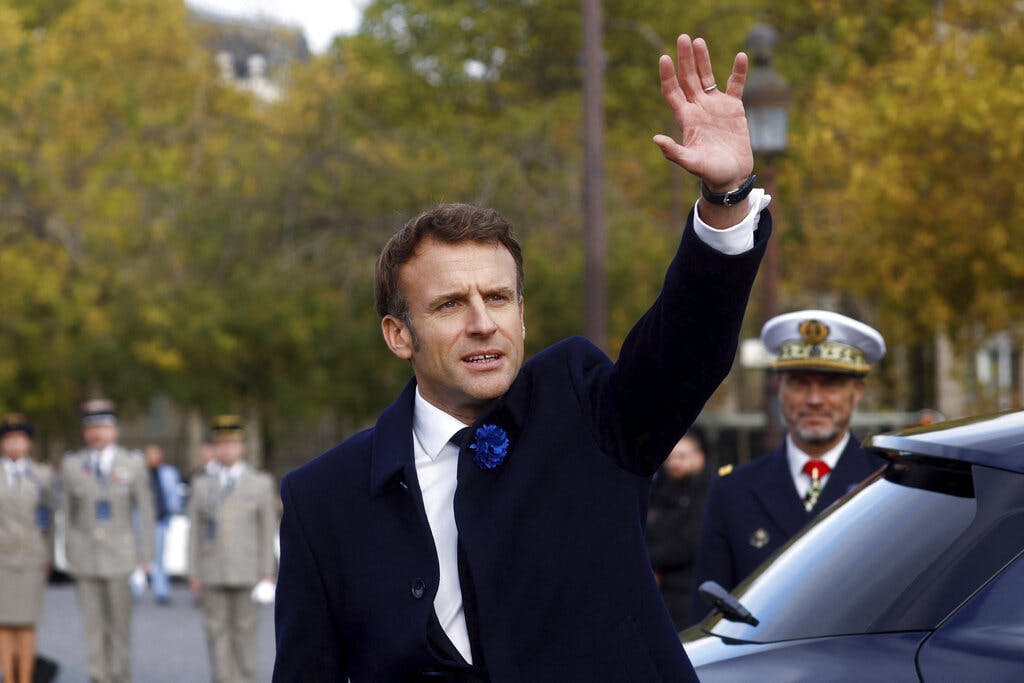Macron, Facing a Criminal Inquiry, Falls Silent Amid ‘McKinseygate’
The probe hinges on ‘improperly maintained campaign accounts, favoritism and concealment of favoritism, and the interference of consulting firms in the 2017 and 2022 electoral campaigns.’

President Macron faces a rising crisis of credibility amid fresh allegations that an American consulting firm, McKinsey & Company, after assisting with his past election campaigns, was preferentially awarded lucrative French government contracts.
Following a report about an impending criminal investigation published Thursday in a major French daily, Le Parisien, members of Mr. Macron’s inner circle initially had “no comment.” In the coming days, though, pressure could mount on the Palais Élysée to issue a fuller response to the judicial scrutiny now bearing down upon it.
That the French president is shielded from prosecution while in office will not stop the investigation led by France’s financial public prosecutor, Jean-François Bohnert, and may even accelerate it. The first act of McKinseygate, as it has previously been dubbed, followed the publication of a report by the French senate about the growing use of private consulting firms by the state and the undue influence they are said to exercise on public policy.
In late March, after a four-month senate investigation, French lawmakers found that Macron’s government had “signed contracts worth at least 2.4 billion euros with consultancy firms since 2018 to work on subjects ranging from pension reform to digital transformation” and that the use of consultancies jumped during his first five-year term, Politico reported.
It was also in March that Mr. Macron told the television channel France 3, “If there is any proof of manipulation, let it go to court.” Now it has. To be clear, the case is not about alleged election meddling, but rather about the possibility that McKinsey received special treatment because of its various ties with the 44-year-old Mr. Macron.
The national financial prosecution service under Mr. Bohnert appears to be going for the jugular, slowly but steadily. Last spring, with McKinsey in its sights, the agency opened a preliminary investigation into “aggravated money laundering and tax evasion.” McKinsey has stated previously that it has paid the taxes required of it in France.
Fast-forward to October 20 and 21, the dates on which the financial prosecutor’s office opened a criminal investigation related to l’affaire McKinsey following “several reports and complaints from elected officials and individuals.” According to the same press release, the probe hinges on “improperly maintained campaign accounts, favoritism and concealment of favoritism, and the interference of consulting firms in the 2017 and 2022 electoral campaigns.”
Mr. Macron prevailed in both elections, but in a country like France, where the public procurement process is generally transparent and egalitarianism is sacrosanct, these are heavy lines of inquiry for the authorities to follow. Favoritism in the public sphere is frowned upon.
Although he is not mentioned by name in the text of the investigation’s description, it is understood that the only political leader to have been publicly incriminated in the case so far is Mr. Macron. Under ordinary circumstances, police could not question him nor could he be charged until his term ends in 2027. Could his term end before that, though? The prospect of an eventual vote of no confidence in his government could precipitate it.
In any event, the slow arm of the law in France has a way of catching up with political leaders. A former French president, Nicholas Sarkozy, faced corruption trials in 2020 and 2021, with the second resulting in a one-year prison sentence. He served as president between 2007 and 2012.
Mr. Macron already faces a French parliament that is largely hostile to his domestic political agenda, and a criminal probe is likely to undercut his legitimacy. Neither will the reputation of McKinsey be completely untarnished.
The company describes itself as “partnering with clients on new growth journeys and accelerating towards a more sustainable, inclusive and growing future that works for all.” Last month, in an article headlined “When McKinsey Comes to Town,” the Times of London proffered, “Want to sell more opioids, neutralize opponents or facilitate corruption? Call these management consultants.”
While the Sun has not yet reached out to McKinsey’s North American press representative due to the holiday, some French media attempted to but to no immediate avail. “McKinsey has no information about the items seen in the media Thursday,” Le Figaro reported after an inquiry was made.
During a televised debate in his second campaign for president with his rival candidate and chief foe on the right, Marine Le Pen, Mr. Macron made an issue of campaign financing and tried to present himself as uncorrupted. That tactic appeared to pay off when he won, and the Guardian noted that “Macron swept to power promising to clean up politics in France.” Yet the French judiciary wields beaucoup de power, too, and it looks increasingly clear that a new round of cleaning up is nigh.

